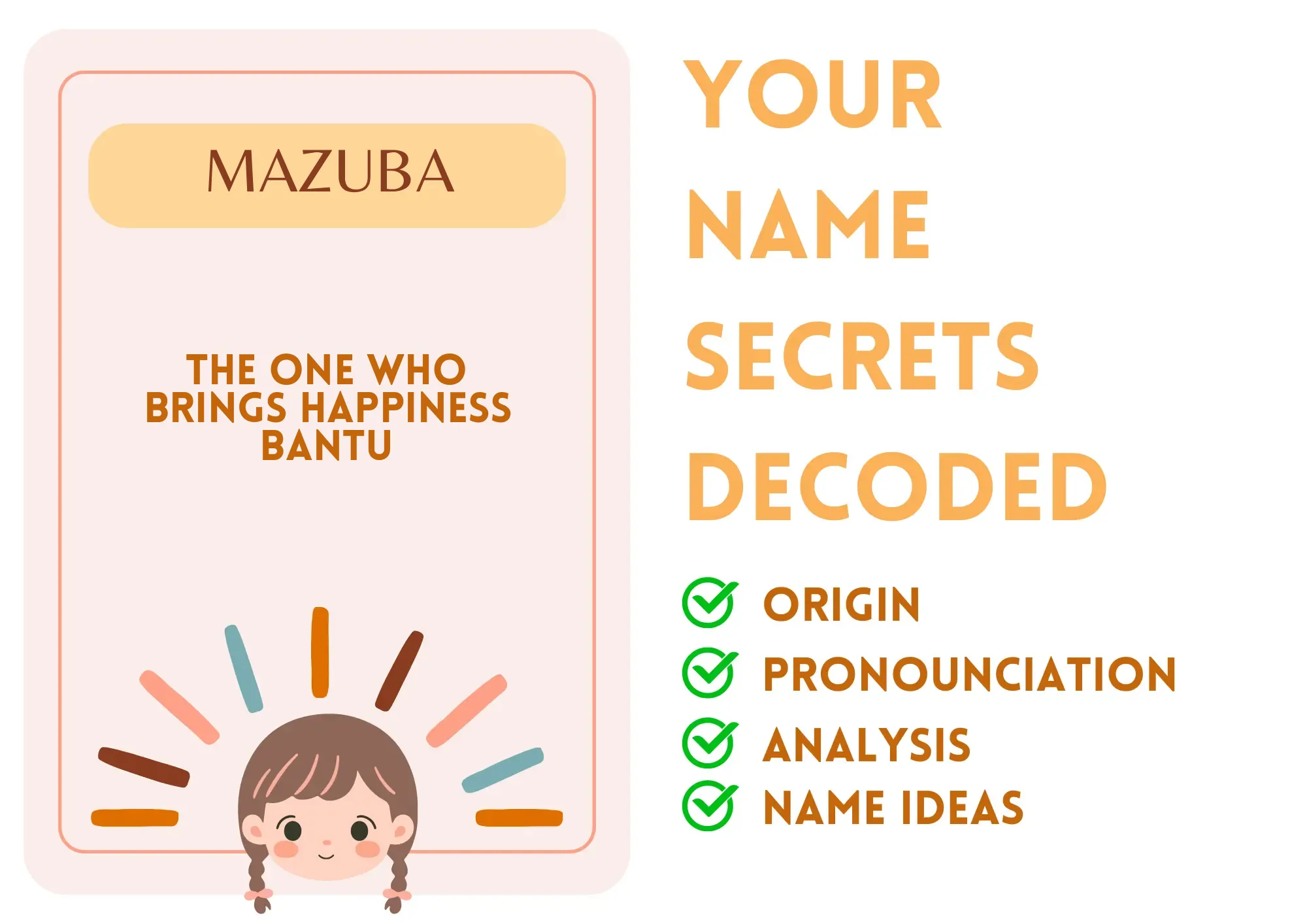
Mazuba
Mazuba is a distinctive name of African origin, particularly from the Bantu languages. It translates to 'the one who brings happiness.' Commonly used in various African cultures, it is primarily a feminine name and is appreciated for its positive connotation. In some cultures, the name carries spiritual significance, symbolizing joy and positivity in the family and community.
The name Mazuba evokes a sense of warmth and joy, making it a popular choice among parents who wish to impart happiness and brightness to their child's identity. It is relatively easy to pronounce and write, with common nicknames that include Zuba and Maza.
While not widely featured in mainstream popular culture, the name Mazuba represents cultural richness and emotional resonance in stories and folklore where characters embody the spirit of joy.
Basic Information
Gender: Girl
Sounds Like: mah-ZOO-bah
Pronunciation Explanation: The first syllable is pronounced with a soft 'ma', the second with emphasis on 'ZOO', and the last syllable is light and short as 'bah'.
Summary and Meaning
Meaning: the one who brings happiness (Bantu)
Origin: The name Mazuba has African origins, particularly rooted in the Bantu languages, reflecting cultural values of joy and positivity.
Usage: Mazuba is traditionally a feminine name, celebrated for its connection to happiness and joy.
Name Number (Chaldean)
Name Number (Pythagorean)
Religious and Cultural Significance
Religion: Traditional African
Background: While there is no singular religion aligned with Mazuba, it reflects the values found in various traditional African belief systems emphasizing community and happiness.
Cultural Significance: Mazuba is often chosen in families hoping to signify happiness, showcasing a cultural appreciation for vibrant and positive names in African heritage.
Historical Significance: Although there may not be extensive historical records specifically for the name Mazuba, its use highlights the African cultural emphasis on names that encapsulate positive life experiences and communal values.
Popular Culture
Literature and Mythology: Mazuba is recognized in folklore that celebrates characters representing joy and is often portrayed positively in storytelling.
Movies and Television: While Mazuba may not have prominent characters in popular films or shows, the name symbolizes happiness and community within narratives across African cultures.
Feelings and Perceptions
Perception: Mazuba is perceived positively, often associated with joy, warmth, and a cheerful disposition. It resonates with families who value positive meanings in names.
Positive Feelings: Unique, warm, uplifting, friendly, joyful.
Negative Feelings: Might be less familiar to non-African audiences, potentially leading to mispronunciation.
Practical Considerations
Ease of Writing and Calling: Mazuba is easy to write and pronounce, consisting of six letters and three syllables, making it memorable and approachable.
Common Typos and Misspellings: Mazuba,Mazouba,Mazubah,Mazuba
Common Nicknames: Zuba,Maza
Compatibility Analysis
Famous Persons Named Mazuba
No results found for Mazuba.
Related Names
Similar Sounding Names:
Zuba,Maya,Zuri,Maya